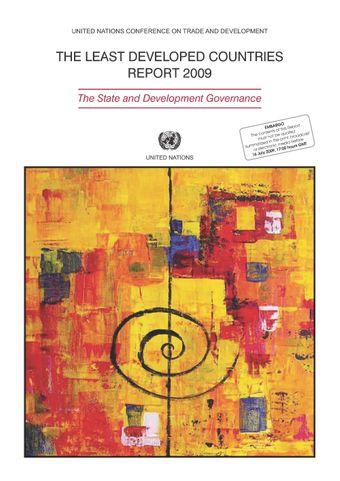Setting the agenda for agricultural policy in LDCs

- Author: United Nations Conference on Trade and Development
- Main Title: The Least Developed Countries Report 2009 , pp 91-140
- Publication Date: August 2009
- DOI: https://doi.org/10.18356/0ced5742-en
- Language: English French, Spanish
For many least developed countries (LDCs), food security1 remains a major priority and policy objective. The global food crisis that erupted in the spring of 2008 served to highlight food insecurity as one of the most fundamental constraints on growth and development in LDCs. The United Nations World Food Programme estimates that the price hikes between late 2007 and the middle of 2008 resulted in an additional 100 million people having inadequate access to food. For LDCs, the impact of the food crisis has been exacerbated by the current global financial crisis and the damaging consequences of climate change, which, in turn, have led to a disturbing trend towards purchasing land for outsourced food production by non-LDC States. Most LDCs face multiple challenges, such as the global fragility of multilateral trade, volatility of growth, liquidity and credit shortages, and vulnerability to natural disasters.2 Improved food security in LDCs could be realized through a combination of policies and measures, including the provision or enhancement of basic infrastructure, and the adoption of improved food production technologies and farming techniques.
© United Nations
ISBN (PDF):
9789210543262
Book DOI:
https://doi.org/10.18356/8d8bb471-en
Related Subject(s):
Economic and Social Development
Sustainable Development Goals:
-
From This Site
/content/books/9789210543262c008dcterms_title,dcterms_subject,pub_keyword-contentType:Journal -contentType:Contributor -contentType:Concept -contentType:Institution105
/content/books/9789210543262c008
dcterms_title,dcterms_subject,pub_keyword
-contentType:Journal -contentType:Contributor -contentType:Concept -contentType:Institution
10
5



